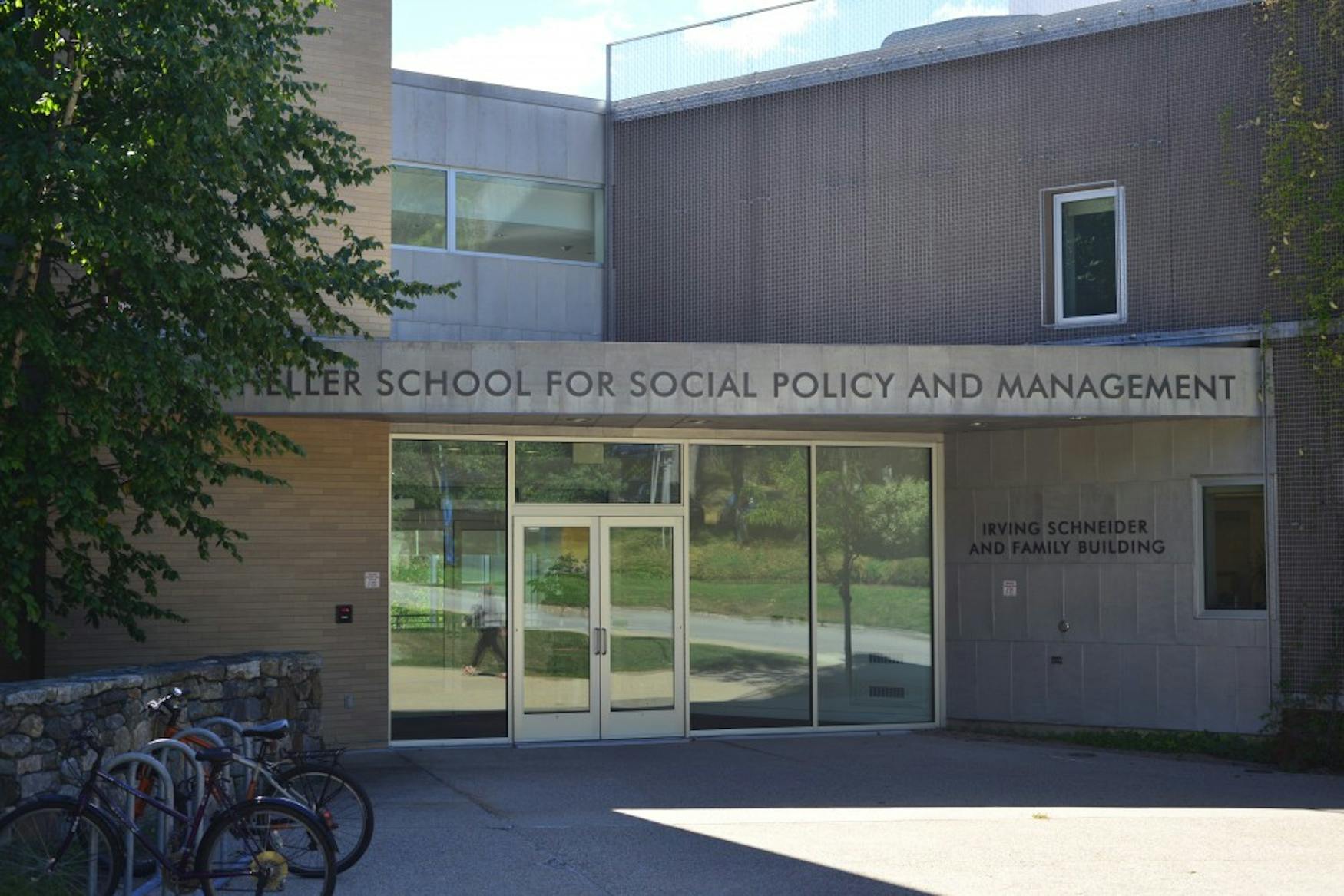Scholars for justice
Having a disability places one in the world’s largest minority group. According to the U.N., around 15 percent of the world’s population—an estimated one billion people—live with disabilities.
The Ruderman Social Justice in Disabilities Scholars Program is working toward the inclusion and full community participation of people with disabilities. The innovative program, founded in 2013, is funded by a $450,000 grant from the Ruderman Family Foundation, an organization that promotes the acceptance and understanding of all people.
The program is a collaboration between the Heller School for Social Policy and Management, The Lurie Institute for Disability Policy and the Health: Science, Society and Policy program, and cites it’s goals on the Brandeis website as “identifying, supporting and training undergraduates to become future leaders in disability-related fields.” The scholarship will include a total of 15 scholars over a period of four years.
Principle overseer of the program, Prof. Susan L. Parish (Heller) is the Nancy Lurie Marks Professor of Disability Policy, director of the Lurie Institute for Disability Policy and associate dean for research at the Heller School. She is currently teaching the course “Disability Policy,” open to all undergraduates, for the first time.
“This scholarship blends research experience, course work and paid internships, thanks to the generosity of the foundation and I’m just really thrilled to be a part of it,” said Parish, who has worked in the field of disabilities for many years.
The Ruderman Family Foundation is a Jewish institution that has a long history of supporting the full inclusion of people with disabilities in the community. The foundation advocates worldwide with offices in both the United States and Israel.
“What we share with them is of course our passion and commitment for social justice. That’s why this fellowship and scholarship program is such a great fit for both the University and the foundation,” Parish explained.
Scholars are selected through an application process in their junior year from the HSSP major. Over the following summer the program allows them to participate in internships in the field of disabilities, while receiving a $2,000 stipend. During their senior year they then take classes required for the scholarship and participate in research in disability policy areas.
“To the best of my knowledge this is the first disability policy scholarship for undergraduates in the United States. I do not believe there’s another one like it. The blend of [the internship, classes and research] gives students just terrific exposure to disability issues from several different vantage points,” Parish said.
Students awarded this scholarship have a wide range of interests in disability issues and typically pursue work in the field after graduation.
“In the first cohort of students who started with us in February, one of the two students is working as a researcher, addressing disability issues in the research that she’s doing with partners locally in greater Boston,” Parish said. The current cohort of schoalrs—Elizabeth Chalfin ’15, Jennie Bromberg ’15, Jennifer Louse Lee ’15 and Deanna Marion ’15—are interested in many different areas of disability policy. “One is very interested in access and physical accessibility for individuals with disabilities and another is interested in health care access for individuals with disabilities,” Parish said.
In 2014, the four Ruderman Scholars will complete the research portion of the program in collaboration with senior scientist and lecturer, Prof. Marji Warfield (Heller). “Often times you don’t get these kinds of experiences until you’re in a graduate program,” Warfield said.
“One of the challenges young people with disabilities have often is making a smooth transition into adult roles and adult life,” Warfield said. She cited entering the workforce, health care and independent living as typically difficult transitions.
“As they’ve gone through education they’ve been eligible for services through the education system … once they turn 22 they can move into the adult system, but their ability to access services is more dependent on budgetary issues.”
Her research will focus on participants of a program called Making Healthy Connections, part of Partners for Youth with Disabilities, in which disabled youth and their families develop skills and support networks to improve their transitions to independence.
The research will include both a quantitative evaluation of Making Healthy Connections’ long-term benefits and more in-depth interviews about the transitions and challenges these disabled youth face. “What we’re trying to do is look at transition across these multiple domains,” Warfeild said, “and how do you make your way when you’re dealing with all of these at once.”
Another primary focus of the program is how to change policy to ensure communal inclusion for people with disabilities. In the United States, the Americans with Disability Act and the 2008 amendments to the Americans with Disability Act provide significant protection for people with disabilities.
However, Parish believes that United States policy still has a long way to go before disabled people can fully exercise their civil rights. “I frankly don’t think these laws go far enough in promoting the full inclusion of people with disabilities. We still see the situation of people with disabilities having the lowest employment rates in the country, they’re most likely to be poor out of any subgroup of individuals,” Parish noted.
The Ruderman Social Justice in Disabilities Scholars Program has a principal mission of effectively advocating for the full community participation and inclusion of people with disabilities. This advocacy in turn helps prepare the next generation of leaders in disability-related fields.
“Fundamentally we all have a responsibility to one another,” Parish said. “When we see a marginalized group, we as a society have a responsibility to act, and this touches deeply on our understanding of Brandeis’ mission and commitment to social justice generally.”
Editor’s note: Jennie Bromberg ’15 is a staff writer for the Justice.



Please note All comments are eligible for publication in The Justice.